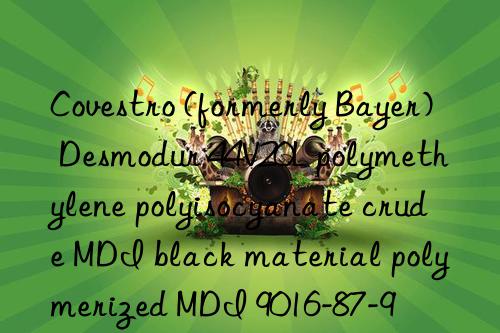
Product Introduction
44V20 contains a certain amount of isocyanate and diphenyl with higher functionality A mixture of methane diisocyanate, dark brown liquid at room temperature.
Product Usage
44V20 can be widely used in the manufacture of polyurethane rigid foam insulation materials; it can also be used in isocyanurate foam, coatings, adhesives, anti-seepage and plugging , structural foam, microporous self-skinning foam, automobile bumpers, interior parts, high resilience foam, synthetic wood and other fields. Due to its unique composition and structure, it has good foam flow properties and is also used in the manufacture of products with strict fluidity requirements for foaming raw solutions.
Physical and chemical properties
|
Project
|
Indicators
|
Execution standards
|
|
Appearance
|
Brown liquid
|
Visual inspection
|
|
Viscosity(25℃)mPa .s
|
150~250
|
GB 12009.3
|
|
NCOQuality score
|
30.5~32.0
|
GB 12009.4
|
|
Density(25 Shelf Life
Since the date of leaving the factory, the warranty period of 44V20 is 1 year when stored according to the specified storage conditions.
Safety Precautions
44V20 has low toxicity in terms of respiratory inhalation and skin absorption; its low volatility makes it suitable for short-term exposure under normal conditions (such as: small leakage, Sprinkled) produces very little toxicity.
However, because 44V20 is an isocyanate compound, it still has a certain degree of toxicity, which can cause moderate eye irritation and mild skin irritation, and can cause skin allergies. The maximum allowable concentration (TLV) of 44V20 in the air is 0.02ppm (0.2mg/m).
But it must be noted that when the temperature of the material is heated above 40°C (such as when melting) or in the workplace, suspended particles in the air will occur Increased concentration may cause toxicity. Gas masks and respirators should be worn when working in similar environments. Otherwise, repeated inhalation of vapor with excessive concentrations may cause respiratory allergies.
Even under normal conditions, due to the active chemical properties of 44V20, care should be taken during operation to prevent direct contact with the skin and splashing into the eyes. Rinse immediately with water and wash skin with soap and water. 44V20 reacts easily with water to release carbon dioxide, so the packaging container should be kept dry and sealed to prevent water from pouring in; once water leaks into the container, be careful not to seal it too tightly and leave a vent to prevent the V from exploding. .
Burning and explosion hazards
MDI series products are listed as Class III Class B flammable liquids in the National Fire Protection Association (NFPA) Standard Manual; the so-called Class III Class B Flammable substances refer to those substances with a flash point higher than 93.3°C; the flash point of MDI series products tested according to the ASTM D93 (P.M.C.C) method is 177~277°C.
Although the flash point is high, it is still flammable in the presence of oxygen and when exposed to high temperatures and open flames; if the fire is strong, it can cause the closed packaging to explode; heat The material can react strongly with water and release harmful gases.
|


 微信扫一扫打赏
微信扫一扫打赏

